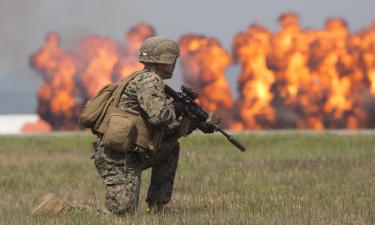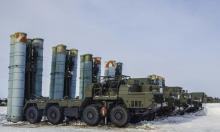Sharon says Israel not to accept nuclear Iran
Israel "can't accept a situation where Iran has nuclear arms" and "is making all the necessary preparations to handle a situation like this," Prime Minister Ariel Sharon said Thursday. Iran's enemies have "the capability" to use military force to disrupt Iran's bid for nuclear arms, he said at the annual Editor's Committee gathering in Tel Aviv, adding that "before exercising it, every attempt should be made to pressure Iran into stopping its activity."
Sharon stressed that "Israel doesn't lead the struggle" to keep Iran nuclear-free, and he hoped the UN Security Council would neutralize "this great danger." Sharon's comments raised Israel's rhetoric against Iran and came on the heels of assessments by IDF brass that, after March, diplomatic efforts to curtail Iran's nuclear program will be pointless.
"Israel is not without hope and is taking all necessary measures, as it should," he said. Changing tack, Sharon referred to international pressure on Syria as critical, saying he was not inclined to discuss a return of the Golan Heights or anything else that might "make things easier for the Syrians." There are "no contacts" between Israel and Syria now, he said.
Sharon alluded to diplomatic pressure on Israel when he said Israel had no plans to build an eastern fence in the Jordan Valley, which he termed "within Israel's security zone."
He said while Israel intended to retain this territory, "I don't think that we'll build a fence there now because this issue is extremely problematic from Israel's point of view [vis-a-vis] the United States, when there are other options available."
Though he ruled out an "additional move like disengagement," he did stake out an unusually firm commitment to finding a "political settlement" with the Palestinians. Sharon said that commitment caused him to break with the Likud. "I decided to leave because I'm looking ahead and want to achieve a political settlement and, God willing, peace," he said. "I didn't see this same willingness in the body I led for years."
Sharon reaffirmed his commitment to the road map plan and retaining the major settlement blocs in the West Bank. He said he was unwilling to encourage Israelis living east of the security barrier to relocate. Sharon reiterated his opposition to Hamas's participation in the upcoming Palestinian elections, but indicated he would not prevent its participation, adding: "It's not a good thing to interfere in other people's elections,’ reports the AP. I.L.
Subscribe to Pravda.Ru Telegram channel, Facebook, RSS!




